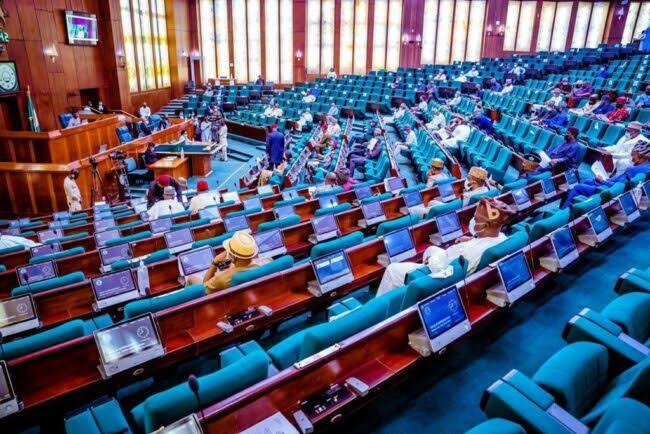former Nigerian Vice President Atiku Abubakar has described the conditions under which some students sat for the 2025 West African Senior School Certificate Examination (WASSCE) as a “national disgrace.” Reports indicate that candidates in several examination centers across Nigeria were compelled to write their English Language paper under the dim glow of torchlights due to power outages, a situation that has laid bare the chronic neglect of the nation’s public education system. The incident, which occurred just days after the global celebration of International Children’s Day on May 27, 2025, has ignited a firestorm of criticism, with stakeholders demanding accountability and urgent reforms to prevent such failures in the future.
The West African Examinations Council (WAEC), the body responsible for administering the WASSCE, has come under intense scrutiny following the debacle. According to a detailed report by Vanguard News on May 30, 2025, students in affected centers were left to navigate one of the most critical exams of their academic careers in near-darkness, relying on makeshift lighting solutions like phone torches. This dire situation not only compromised the integrity of the examination process but also placed undue stress on candidates, many of whom are already grappling with the pressures of a high-stakes assessment that determines their academic and professional futures.
Atiku, a prominent figure in Nigerian politics and a vocal advocate for educational reform, did not mince words in his condemnation. In a statement issued on May 30, 2025, he lambasted the federal government and relevant authorities for allowing such a travesty to occur. “That Nigerian children were writing their WAEC English Language examination in darkness, just days after International Children’s Day, is a national disgrace,” Atiku declared. He argued that the incident is symptomatic of deeper systemic issues plaguing Nigeria’s education sector, including inadequate infrastructure, poor funding, and a lack of political will to prioritize the welfare of students. Atiku called for immediate action, demanding that the affected exams in compromised centers be nullified and rescheduled under proper conditions. He further urged the government to invest in establishing minimum environmental and infrastructural standards for examination centers to prevent future occurrences.
The controversy surrounding the 2025 WASSCE extends beyond the issue of lighting. The House of Representatives Committee on Basic Education has also waded into the matter, expressing frustration with WAEC’s handling of the situation. The committee issued a 24-hour ultimatum to WAEC to address concerns about examination irregularities, particularly after the council failed to attend a scheduled hearing to explain the lapses. This absence was described as a “gross disrespect” to the legislative body, further fueling tensions between WAEC and lawmakers tasked with overseeing educational standards.
Compounding the issue, the National Association of Nigerian Students (NANS) has raised additional concerns about the conduct of the English Language paper. NANS reported that delays in starting the exam, which in some centers stretched as late as 7 p.m., were caused by alleged question paper leakages. These delays not only disrupted students’ psychological preparedness but also posed significant safety risks, as candidates were forced to remain at examination centers well into the evening. The student body criticized WAEC for its apparent inability to manage the examination process effectively, calling for greater transparency and accountability.
In response to the mounting criticism, WAEC issued a public apology, acknowledging the logistical and environmental challenges that marred the 2025 WASSCE. The council attributed the delays to its efforts to safeguard the integrity of the examination by preventing question leakages. According to WAEC, additional security measures were implemented to ensure no breaches occurred, which inadvertently caused scheduling disruptions. The council also cited logistical issues and external security concerns as contributing factors. Despite these challenges, WAEC maintained that it successfully prevented any examination malpractices, though this claim has done little to assuage the frustration of students, parents, and educators.
The incident has reignited long-standing debates about the state of Nigeria’s public education system. For years, stakeholders have decried the underfunding of schools, dilapidated infrastructure, and a lack of basic amenities like electricity and functional classrooms. The fact that students were forced to rely on torchlights to complete their exams underscores the depth of these systemic failures. Education advocates argue that the government must prioritize investments in school facilities, teacher training, and examination infrastructure to ensure that Nigerian students are not shortchanged.
Atiku’s call for a retake of the affected exams has garnered support from various quarters, with many arguing that fairness demands a second chance for students who were disadvantaged by the conditions. However, implementing such a measure poses logistical challenges for WAEC, which oversees examinations for millions of candidates across West Africa. Rescheduling exams would require significant resources and coordination, particularly in ensuring that new examination centers meet acceptable standards.
As the fallout from the 2025 WASSCE continues, the incident serves as a stark reminder of the urgent need for comprehensive education reform in Nigeria. The image of students scribbling answers under torchlight is not only a symbol of systemic neglect but also a call to action for policymakers, educators, and citizens alike. With Nigeria’s youth population projected to grow significantly in the coming decades, the government faces increasing pressure to address these challenges head-on to secure a brighter future for the next generation.
For now, the nation waits to see how WAEC and the federal government will respond to the demands for accountability and reform. Will this incident mark a turning point in Nigeria’s education sector, or will it fade into the long list of unresolved crises? Only time will tell, but one thing is clear: the students of Nigeria deserve better.
Join our Whatsapp channel to stay updated always!



ug0n2e